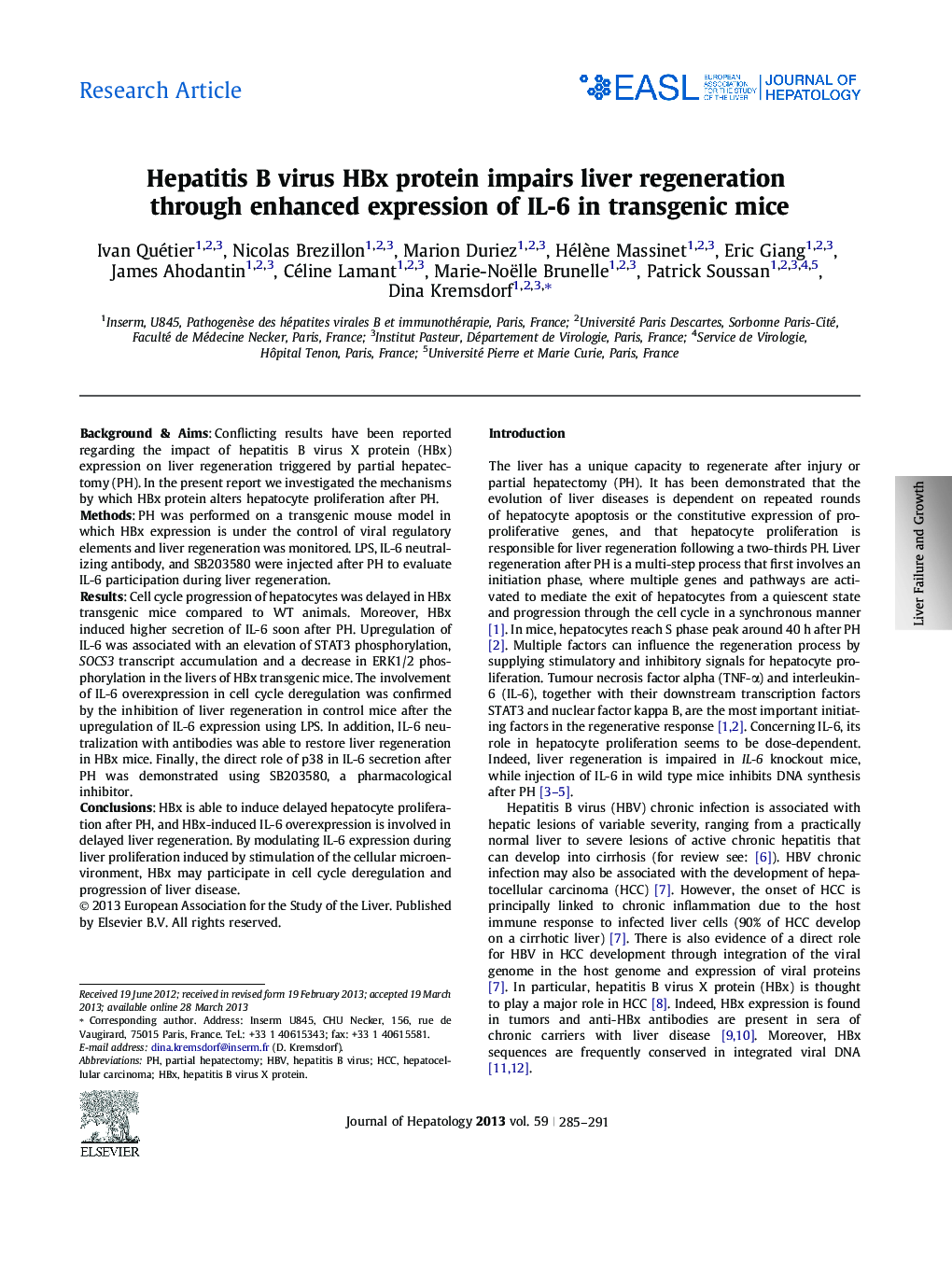| Article ID | Journal | Published Year | Pages | File Type |
|---|---|---|---|---|
| 6104323 | Journal of Hepatology | 2013 | 7 Pages |
Background & AimsConflicting results have been reported regarding the impact of hepatitis B virus X protein (HBx) expression on liver regeneration triggered by partial hepatectomy (PH). In the present report we investigated the mechanisms by which HBx protein alters hepatocyte proliferation after PH.MethodsPH was performed on a transgenic mouse model in which HBx expression is under the control of viral regulatory elements and liver regeneration was monitored. LPS, IL-6 neutralizing antibody, and SB203580 were injected after PH to evaluate IL-6 participation during liver regeneration.ResultsCell cycle progression of hepatocytes was delayed in HBx transgenic mice compared to WT animals. Moreover, HBx induced higher secretion of IL-6 soon after PH. Upregulation of IL-6 was associated with an elevation of STAT3 phosphorylation, SOCS3 transcript accumulation and a decrease in ERK1/2 phosphorylation in the livers of HBx transgenic mice. The involvement of IL-6 overexpression in cell cycle deregulation was confirmed by the inhibition of liver regeneration in control mice after the upregulation of IL-6 expression using LPS. In addition, IL-6 neutralization with antibodies was able to restore liver regeneration in HBx mice. Finally, the direct role of p38 in IL-6 secretion after PH was demonstrated using SB203580, a pharmacological inhibitor.ConclusionsHBx is able to induce delayed hepatocyte proliferation after PH, and HBx-induced IL-6 overexpression is involved in delayed liver regeneration. By modulating IL-6 expression during liver proliferation induced by stimulation of the cellular microenvironment, HBx may participate in cell cycle deregulation and progression of liver disease.
